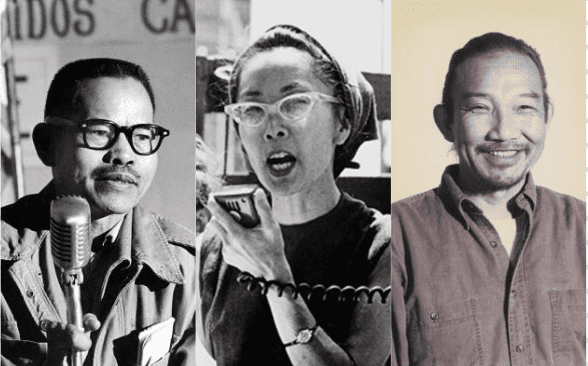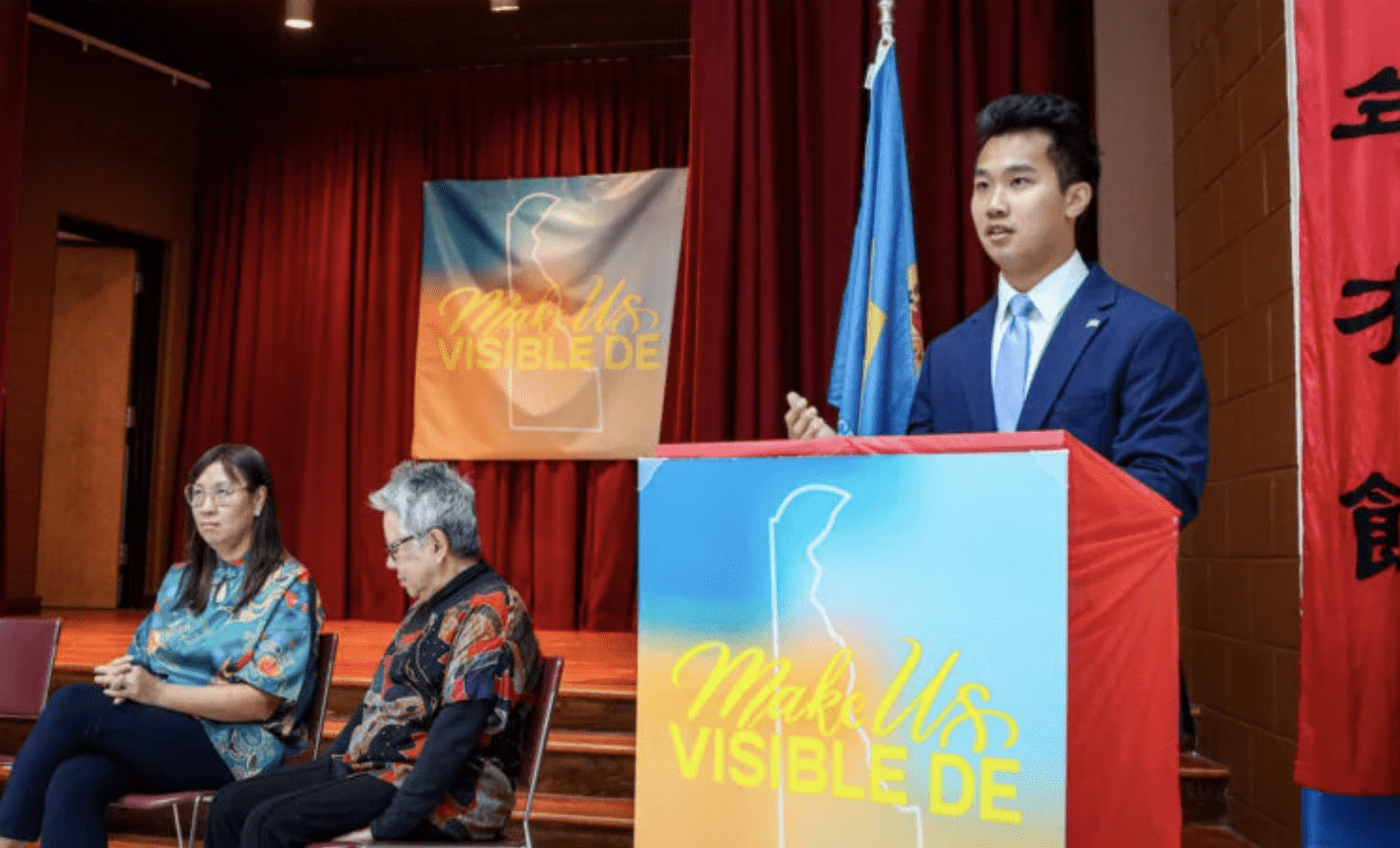
Larry Itliong, Yuri Kochiyama and Kiyoshi Kuromiya, all prominent figures and advocates in Asian American history.
With Delaware schools moving to include more Black history in their curriculums, a new Delaware group wants to do the same for Asian American history.
Make Us Visible DE is the latest branch of Make Us Visible, a group established in 2021 that wants to highlight Asian American contributions, experiences and history into K-12 classrooms.
“This isn’t about some cultural studies or you know, what happened in China or India in the 1500s with the building of a dynasty,” the co-founder and co-director of Make Us Visible DE told the Christina School District board Tuesday night,
“This is about what Asian Americans have contributed to America and how they’ve shaped American history for the better,” said Devin Jiang.
Delaware is the 19th state to establish a chapter of the organization, and four more states are expected to follow suit.
Jiang, a junior at UD studying public policy, asked the board to consider how they incorporate Asian American heritage into history classes.
Two of Christina’s board members – Y.F. Lou and Naveed Baqir – are members of Delaware’s chapter. It had a community launch event Sept. 30 at the Chinese American Community Center in Hockessin.
That event included students, teachers, parents, Asian American community leaders, state lawmakers and superintendents.
“I’m here today to see if we can work together towards that end,” Jiang said.
Jiang said the group plans to make efforts on multiple fronts: advocating to state lawmakers, but also engage the community by talking to teachers and students and administrators.
“Those are the groups that are often left out of the conversation when it comes to creating educational policy and within our schools,” Jiang said.
Five states have passed legislation in recent years mandating Asian American studies, including New Jersey, Delaware’s neighbor, Jiang pointed out.
Delaware passed a law in 2021 requiring K-12 public and charter schools to create a curriculum that includes contributions Black individuals have made to American society, culture, art, economics and politics.
Many schools plan to spread that history throughout various courses and not limit it to a formal slot in history classes.
There is no such law in the First State for Asian American curriculum.
RELATED: Delaware teachers, others work to create Black History curriculum
“Teaching American history is exactly what Asian American history is,” Jiang said.
He said there’s a misconception that teaching Asian American history is rewriting history, or is a specific type of cultural studies.
It’s not, he said.
It’s valuable to learn about prominent Asian American figures and they are now not being taught, he said.
“Students should learn about George ‘Yod’ Dupont, who was a Thai immigrant who fought in the American Civil War for the North,” Jiang said. “He fought in key battles like Antietam, Chancellorsville and also Gettysburg, which led to uniting the country and freeing the slaves.”
He also cited Pio DeCano, a Filipino immigrant in Washington state who fought the unfair land laws since there were laws that prevented Asian immigrants from owning property.
He took those laws to the state Supreme Court and they were ruled unconstitutional and it granted Asian Americans and immigrants the right to own property in Washington.
“And students should learn about Jackie Young, a Korean American immigrant who was pivotal in Title IX,” Jiang said. “She was a huge advocate for women’s fairness and also equality within schools.
All three examples are Asian American pioneers who have influenced American history for the good, he said.
Teaching this history in Delaware’s public schools helps alleviate a safety issue, too, he said.
“Since 2020, there’s been a huge increase in anti-Asian American violence from these hate crimes that are despicable and saddening,” Jiang said. “While there’s Asian American discrimination within institutional levels in government and society at large, there’s also microaggressions that maybe your teachers, neighbors or kids even face in school, whether it be bullying, name calling or inappropriate gestures.”
He called Make Us Visible’s goals a long-term preventive solution to anti-Asian American violence.
“When we can teach Asian American history in a way that is uplifting and not dehumanizing, and it starts in the classroom,” he said, “students will see Asian Americans as their neighbors, not as foreigners or a threat to our country.”

Raised in Doylestown, Pennsylvania, Jarek earned a B.A. in journalism and a B.A. in political science from Temple University in 2021. After running CNN’s Michael Smerconish’s YouTube channel, Jarek became a reporter for the Bucks County Herald before joining Delaware LIVE News.
Jarek can be reached by email at [email protected] or by phone at (215) 450-9982. Follow him on Twitter @jarekrutz
Share this Post





